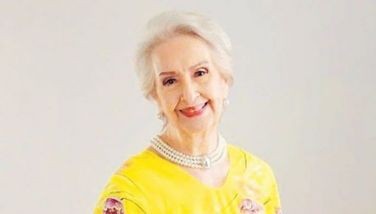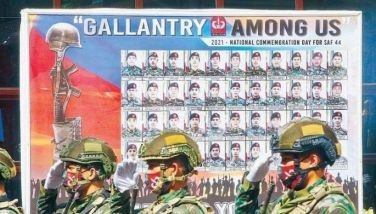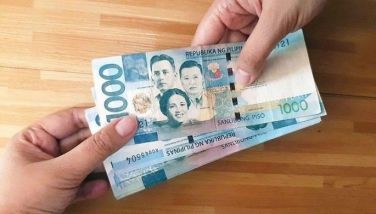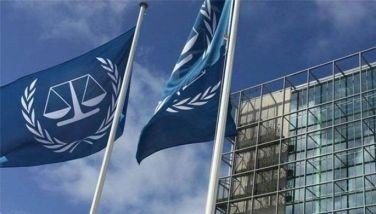The 'war on drugs' quietly continues 100 days into Marcos administration
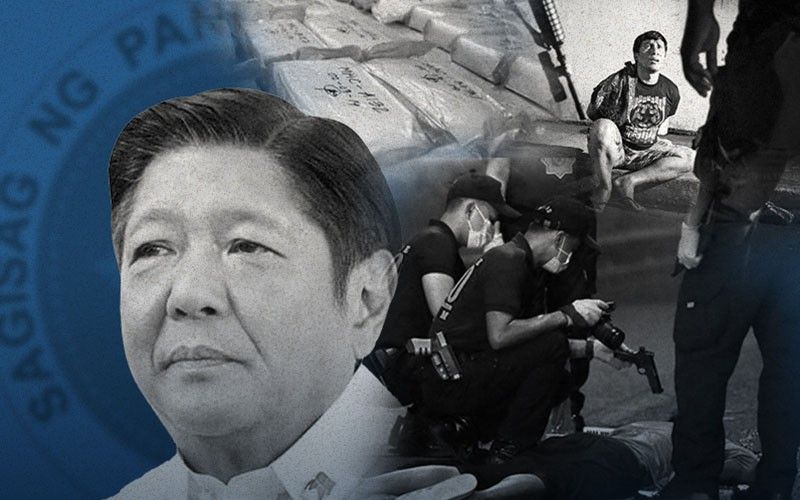
MANILA, Philippines — Carl*, 23, and Sharon*, 38, lost their loved ones in the early days of former president Rodrigo Duterte's bloody "war on drugs". They say they havve moved on, but they can never forget, even under a new government.
Carl lost both his mother and stepfather on the same day in 2017. He said cops knocked on their door that day asking the family to participate in an identification survey to profile the neighborhood — a known informal settler’s area.
The officers claimed they were there specifically for him, but his parents pulled him aside and spoke with the officers outside. After two tense hours, he watched as they reluctantly followed the officers in his place. That was the last time he saw his parents alive.
"The police took advantage of Duterte's orders because they knew they'd be protected... I hope the Marcos administration re-opens the cases of people who never did anything wrong," he told Philstar.com in Filipino when asked about his hopes for the Marcos administration's drug policies.
Sharon's younger brother, who was just 20 at the time, fell victim to the "palit-ulo" or "exchange heads" scheme that police officers allegdly to fulfill their monthly quotas. In those cases, the wife, husband or relative on a so-called drug list would be taken in case the actual person on the list could not be found.
Sharon said her brother had nothing to do with drugs and was not even linked to any known users. She said she was initially supportive of Duterte's anti-narcotics campaign, but that incident convinced her that even innocent people were dying on the streets at night.
"Everything Duterte started, I hope [Marcos] doesn't do again. The life of a person, they're not animals. I hope they put themselves in our shoes so they understand," she said in Filipino the same interview. "For them, it was so easy to kill a human. But what happens to the ones who were left behind?"
"I hope the president is transparent with people and isn't one-sided... I hope he focuses more on people he knows need help. Not just on the side of the rich and powerful."
The two now serve coffee and wait tables at a cafe in Quezon City. They are just two of the thousands left behind by Duterte's estimated 30,000 drug war victims.
By the time Duterte stepped down from office, official data from the Philippine National Police and the Philippine Drug Enforcement Agency owned up to 6,252 "persons who died during anti-drug operations."
Most if not all of these, police said, violently resisted arrest and forced authorities to act in self-defense.
How has the "war on drugs" gone in the first 100 days of Marcos? Here's a look at how things have changed since then.
Killings continue
Marcos has said he will continue the "war on drugs" of the Duterte administration but with a change in focus to bigger fish in the drug trade, while pushing for the rehabilitation of small-time drug users.
The Department of the Interior and Local Government, which supervises the police, launched a new anti-drug program "Buhay Ingatan, Droga'y Ayawan (Take Care of Life, Say No to Drugs)" that Local Government Secretary Benhur Abalos said would involve a "cross section of our society" and would have programs across government agencies.
Abalos said at the launch that the anti-drug campaign would "be in accordance with the with the oath that I have taken on the basis of the Constitution." Although specific programs have yet to be announced, Abalos said "it will be the same intensity as before", but would also focus on reducing demand by addressing the roots of the drug problem like "poverty, social crimes, unemployment, problems of the youth."
READ: Marcos to pursue Duterte's 'war on drugs' with same vigor, but different approach
While the tone has shifted, the supposed pivot to a health-centered approach has yet to be reflected on the ground. According to the monitoring of Dahas PH, a running count of reported drug-related killings by the Third World Studies Center at the University of the Philippines, 90 people have been killed between July 1 to September 30.
In September, Marcos explained that the campaign on illegal drugs is an "internal matter." He had opted to leave it out of his first State of the Nation Address in July altogether; he said a working group was still formulating policies for the administration's anti-drug campaign.
READ: Human rights situation, ICC not in Marcos' first SONA
The death count is lowerso far but rights groups pointed out that people are still being killed. Attacks against activists and government critics continue, they said. Official red-tagging or the malicious labeling of individuals, groups and institutions as "communist-terrorists" is unabated.
"The changes we’ve seen so far is mostly the tone, even the substance, of the statements coming from the president and his people," Carlos Conde, Asia researcher at the New York-based Human Rights Watch told Philstar.com in an emailed commentary.
"They’ve said things like the drug war will be different, that it will not target small drug users. But words are one thing, what’s happening on the ground is another. He has not ordered a stop to the drug war violence, so we still see people being killed in drug-related violence," he also said.
On September 1-30, 17 died in Marcos Jr.'s drug war, 53% less than last month. Among those with reported links, more high-value targets were killed than pushers while unidentified killers were the top assailants. Davao City is the top hotspot.
— Dahas (@DahasPH) October 5, 2022
Sources: https://t.co/AZZElYofaX pic.twitter.com/udFB8WilHH
Justice pending
Speaking before the 51st Regular Session of the UN Human Rights Council in Geneva, Justice Secretary Jesus Crispin Remulla spoke of a change in direction of the "war on drugs" to one of "changing the culture" surrounding illegal drugs.
"Marcos has refocused the anti-illegal drug campaign – tackling the source of the problem. He has stated that criminal masterminds must be apprehended and punished, not small-scale users on the street. He has emphasized the need for rehabilitation, prevention, education and assistance to victims and their families," Remulla said.
"We are on a new pathway towards an inclusive and empowering ecosystem of social justice. President Marcos is a consensus-builder and has a deeply human approach to law enforcement and the anti-illegal drug campaign."
The Philippine National Police has publicly claimed that its anti-drug operations in September led to the arrest of thousands and the seizure of millions worth of illegal drugs with zero deaths. It also says index crimes dropped 11.67% in Marcos' first two months compared to the same period a year prior.
No assurance of accountability
Both Sharon and Carl said they were intimidated by police into not filing cases. Carl said his family searched for the officers who introduced themselves at the door, but no desk officer in any of the nearby precincts knew about those names or the operation.
It's this shared experience of failing domestic remedies that led thousands of relatives of drug war victims to rely almost solely on the International Criminal Court.
In the first 100 days of the Marcos administration, rights groups are hopeful that the justice system can serve victims better than it did under Duterte.
"I think it is too early to say if things have changed in this regard. Keep in mind, the old structures are in place, so we doubt very much if any significant change has been done," Conde said.
"Victims are still afraid to seek help from the police and the government. Thousands are being thrown in jail for minor drug offenses and could not afford bail, so they spend time in jail even if they didn’t have to."
Between continuity and change
Marcos on August 1 said the Philippines has no intention of rejoining the International Criminal Court, maintaining that deaths linked to the so-called drug war are already being investigated by the Philippine government.
Solicitor General Menardo Guevara, previously Duterte's justice secretary, maintained that "the alleged murder incidents that happened during the relevant period do not constitute 'crimes against humanity', considering that said incidents do not qualify as an 'attack' against the civilian population".
But for Conde, Marcos "owes so much to Duterte so we doubt very much that he would veer too far away from Duterte’s methods," adding he would have ended the "drug war" otherwise.
"From a purely political standpoint, it doesn’t make sense for Marcos to continue the drug war policy. The only logical reason why is his allegiance to Duterte, who helped him and his family recover politically," Conde said.
"I think constant pressure from the international community – which is why we’re disappointed by the UNHRC’s failure to come up with a resolution – will force Marcos to change the drug war policy. At least that is the hope," he added.
--
*Interviewees surnames have been left out for safety purposes
Read other explainers on Marcos' first 100 days:
- After series of resignations in first 100 days, are cracks emerging in Marcos’ unity?
- The first 100 days of Marcos: Where is our transportation heading?
- In first 100 days in office, Marcos kills hopes for Philippines rejoining ICC
- Marcos' 1st 100 days: Still no health chief, eased mask rule
- In charts: The Philippine economy 100 days into Marcos presidency
- Latest
- Trending

















